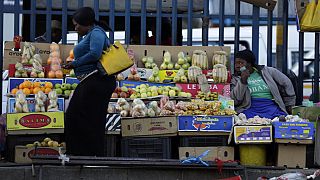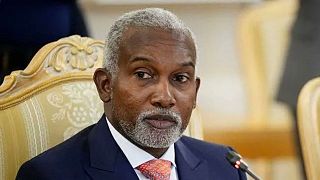Nigeria
One year after the invasion of Ukraine by Russia, many companies in the emerging economies are feeling the pain.
Bakeries in Nigeria are one such example as many have shut their doors, unable to afford the exorbitant price of flour.
“Before the start of the conflict in Ukraine, which started in February of last year (2022, Ed.), flour was going for around N15,000 (33$) but today is at N31,000 (68$) that marks an increase of about 136%. This is usually unstable for any business to survive. However, the government has been able to help provide, however you have to fix your prices to accommodate this increase, and this doesn’t only affect flour, it affects sugar, it affects flavours, if affects the price of diesel, it affects the price of electricity. So, the cost of production has generally gone up”, said bakery manager, Tolulope Phillips.
For this bakery manager, the solution lies in more investment in agriculture and jobs.
“The Russia/Ukraine war is affecting us presently. However, if we as a people, as a government had invested better in agriculture, by investing in silos, creating better jobs, making sure our farmers are able to produce enough for the country, I see no reason why we would have to be importing wheat, sorghum, corn, maize, from countries like Ukraine, Russia in 2023, we should have gone beyond such dependencies”, concludes the bakery manager.
Johnson Chukwu is an economist and CEO of Cowry Asset Management.
In his view, Nigerians should switch from wheat-based meals to local cereals.
“Probably what Nigeria should have done was a switch from wheat-based meals to other tuber and other cereals that are produced locally but because even local production has suffered because of insecurity, mostly the food base of this country. So, Nigerians do not have the headroom, there’s no headroom for local consumers, Nigerian consumers to switch to the locally produced food items because those food items are also quite expensive as their production has declined”, said the expert.
According to the International Monetary Fund, IMF, growth expectations this year and last dropped significantly equating to about $1 trillion in lost production.











02:09
In a bid to aid its economy, Lebanon hopes to return to golden age of tourism
01:09
Egypt: Inflation forecast to have climbed further in May
01:08
OECD revises forecast, projects slowdown in global economic growth
02:20
Morocco seeks to preserve traditional cooking and recipes through UNESCO project
Go to video
Gaza on the brink as aid ship attacked, fuel and medical supplies dwindle
Go to video
Equatorial Guinea secures investment-grade rating — But for how long {Business Africa}